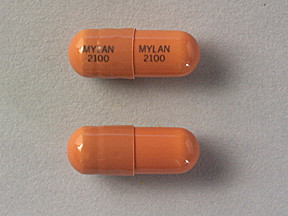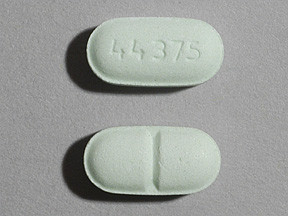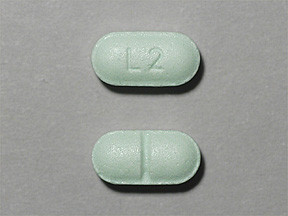LOPERAMIDE - ORAL
PHONETIC PRONUNCIATION: (low-PAIR-uh-mide)
COMMON BRAND NAME(S): Imodium
GENERIC NAME(S): loperamide HCl
Uses
USES: This medication is used to treat sudden diarrhea (including traveler's diarrhea). It works by slowing down the movement of the gut. This decreases the number of bowel movements and makes the stool less watery. Loperamide is also used to reduce the amount of discharge in patients who have undergone an ileostomy. It is also used to treat on-going diarrhea in people with inflammatory bowel disease. Loperamide treats only the symptoms, not the cause of the diarrhea (e.g., infection). Treatment of other symptoms and the cause of the diarrhea should be determined by your doctor. Do not use in children younger than 6 years unless directed by your doctor. See also Warning section.
How to use LOPERAMIDE - ORAL
HOW TO USE: See also Warning section. If you are using the over-the-counter product to self-treat, read all the directions on the product package before taking this medication. If your doctor has prescribed this medication, follow your doctor's directions and the directions on your prescription label. Take this medication by mouth, usually after each loose stool, or as directed by your doctor. The dosage is based on your condition and response to treatment. In children, dosage is also based on age and weight. Adults should not use more than 8 milligrams in 24 hours if self-treating, or 16 milligrams in 24 hours if under a doctor's direction. If you are taking the chewable tablet, take this medication on an empty stomach. The chewable tablets should be chewed thoroughly before swallowing. If you are using the rapidly dissolving tablets, dry your hands before opening the blister pack to carefully remove a tablet. Do not push the tablet through the blister pack. Place the tablet on the tongue, allow it to dissolve completely, then swallow it with saliva. Do not crush, split, or break the tablet before taking it. Do not remove the tablet from the blister pack until just before taking. No water is needed to take this medication. Diarrhea can cause a serious loss of body water (dehydration). Drink plenty of fluids and minerals (electrolytes) to replace what is lost. Tell your doctor right away if you develop signs of dehydration (e.g., extreme thirst, decreased urination, muscle cramps, weakness, fainting). You may also need to change to a bland diet during this time to reduce irritation to your stomach/intestines. Consult your doctor or pharmacist for more information. Tell your doctor if your diarrhea does not improve after 2 days, if your condition worsens, or if you develop new symptoms. If you develop blood in the stool, fever, or an uncomfortable fullness/swelling of the stomach/abdomen, or if you think you may have a serious medical problem, seek immediate medical attention. If you are taking this medication under your doctor's direction for ongoing diarrhea, tell your doctor if your diarrhea continues after 10 days of treatment.
Side Effects
Precautions
Interactions
Overdose
Images

- color
- light brown
- shape
- oblong
- imprint
- MYLAN 2100, MYLAN 2100

- color
- light brown
- shape
- oblong
- imprint
- MYLAN 2100, MYLAN 2100
Reviews
Faq for LOPERAMIDE - ORAL
Loperamide is an over-the-counter medication used to treat diarrhea. It helps slow down bowel movements and reduce the frequency of loose stools.
Loperamide comes in the form of capsules, tablets, and liquid. Follow the instructions on the packaging or as directed by your doctor. Typically, it is taken after each loose stool, with the initial dose being double the regular dosage.
Loperamide usually starts working within 1 to 3 hours, but it may take longer in some cases. If your symptoms do not improve within 48 hours, consult a healthcare professional.
It is best to consult a doctor or pharmacist before taking loperamide while pregnant or breastfeeding. Generally, it should be used with caution and under medical supervision.
If your symptoms persist or worsen after taking loperamide for 48 hours, seek medical attention. Loperamide is not intended for prolonged use, and persistent diarrhea may require further medical evaluation.
Loperamide is not recommended for use in children under two years old without consultation and guidance from a healthcare professional. Always follow the dosing instructions specifically for children.
Common side effects of loperamide may include constipation, abdominal cramps, dizziness, drowsiness, and dry mouth. If you experience severe or persistent side effects, contact your doctor.
Loperamide may interact with certain medications such as antibiotics, antifungal drugs, and medications that affect the heart rhythm. Consult your doctor or pharmacist before using loperamide if you are taking any other medications.
Yes, loperamide can be used to manage symptoms of traveler's diarrhea. However, it is important to also stay hydrated and follow proper food and water safety precautions while traveling.
Warning
WARNING: Improper use of this medication (overuse or abuse) may cause serious harm, such as fast/irregular heartbeat or death. Do not increase your dose, take it more often, or take it for longer than directed. Taking loperamide with certain other medications may also cause harm. See also Precautions, Drug Interactions, and Overdose sections. This medication is not approved for use in children younger than 2 years due to an increased risk of side effects (such as slow/shallow breathing, fast/irregular heartbeat).
Disclaimer
IMPORTANT: HOW TO USE THIS INFORMATION: This is a summary and does NOT have all possible information about this product. This information does not assure that this product is safe, effective, or appropriate for you. This information is not individual medical advice and does not substitute for the advice of your health care professional. Always ask your health care professional for complete information about this product and your specific health needs.



No Reviews Yet